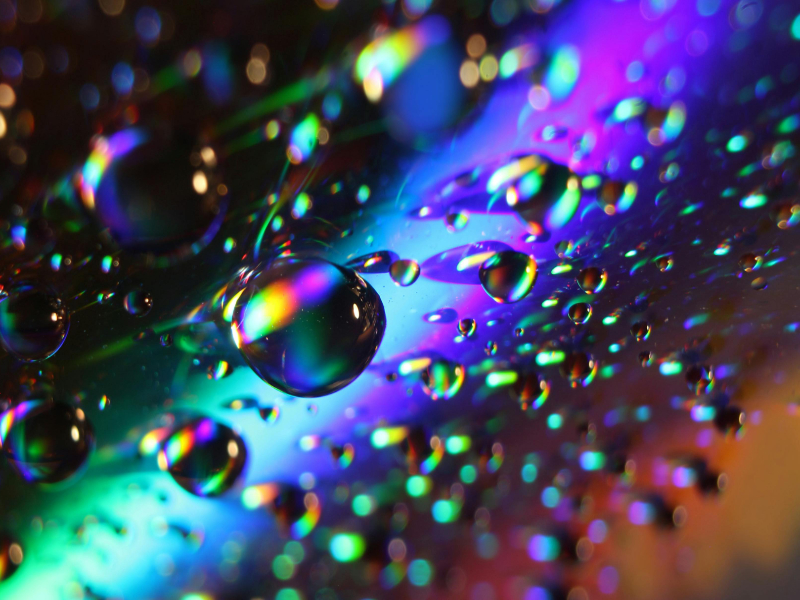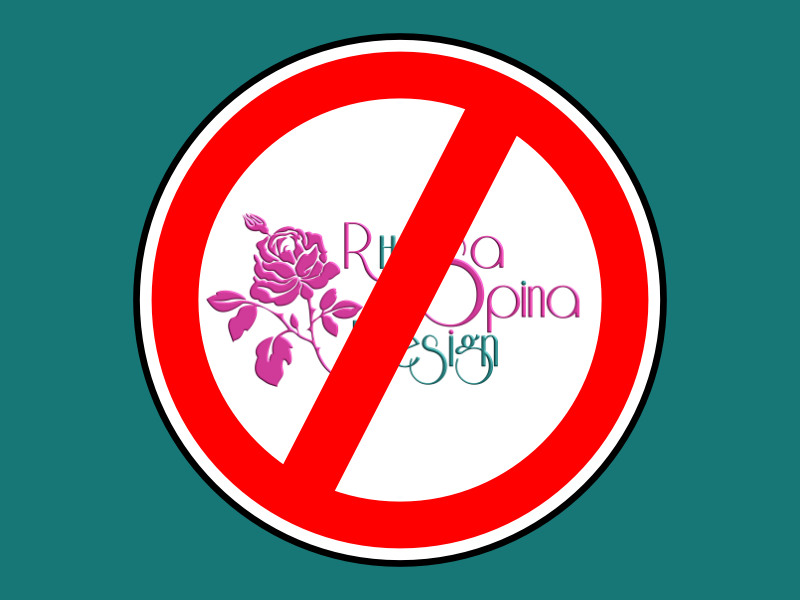
© image: Taha Samet Arslan on pexels.com
Debunking 7+1 Myths About Being HSP
Living as an HSP is not easy in itself, we all know that. Yet living with labels and myths attached is still less easy and, being an added source of stress, is totally unnecessary. Doc Google has got many things to say about what it is like to be an HSP...
Living as an HSP is not easy in itself, we all know that. Yet living with labels and myths attached is still less easy and, being an added source of stress, is totally unnecessary. Doc Google has got many things to say about what it is like to be an HSP – the list grows every year. Many of them are simple truths everyone involved into an HSP’s life can experience directly, while some others reflect the current trend of classifying people into categories full of myths and irrelevant traits. Let us see seven of them.
A word of caution. It may not be easy for the reader to let go of these myths because some of them cast a positive light on us HSP but I suggest that facing reality as it is with no labels and no prejudices is a form of realism more practical and respectful of our dignity as human beings than conforming to what others say, no matter if they are in the public eye, are famous or are labelled as “specialists”.
-
Being an HSP is a superpower or a gift.
Let us face it: we live neither in the fairy tale world nor in a comic. There is no such thing as a superpower. We are not superheroes. We are not to save humanity nor are we better than the others. We are who we are because we were born that way and we have to live the way we are. Our life is not easy and we experience many difficulties because we feel more deeply and intensely. Yes, looking at our peculiarities in a positive way is OK but calling it “a superpower” is meagre compensation for our discomfort. Moreover, being an HSP is of no practical use like flying or being invisible: we cannot 100% detect lies, we often find it difficult to distinguish between our mood and the others and we have to learn to cope with our feelings.
-
HSP are the strongest (as per Google).
Yes, Doc Google can explain to you why we are “the strongest”, its source being an article (https://time.com/6259002/why-sensitivity-is-a-strength/) telling us that we are a sort of an electric guitar since we respond to the “boost effect” – for those who are not familiar with that term, it defines the sound effects certain electric devices can add to the natural sound of a guitar. Similarly, we can profit more from instructions and support, probably, I add, due to our peculiar response to dopamine and our propensity to ponder on inputs. Yet, it is difficult to see how such characteristics may make us the most robust, the most apt to withstand physical and emotional tasks, which is the dictionary’s definition of “strong”. Ironically, we are considered the weakest by our modern muscular society, given the fact that sensitivity is disregarded as sissy’s stuff – and this is why, once more, we tend to cope with the way people look at us with an emotional compensatory vision. Is calling us nice names a way to compensate for our low levels of serotonin and lack of inner gratification? I cannot say but, in my opinion, it is highly probable.
-
Being an HSP is genetic.
According to science, the basis of who we are is genetic: the colour of our skin, the type of hair, the fact of being prone to some diseases... Yet I see that, when scientists do not know why a person is born with certain traits, they say it is “genetic” simply because there is no other apparent reason. This does not explain why a person is born with certain characteristics. Yes, of course, everyone is who they are because they are who they are but this is a tautology, not a brilliant example of scientific reasoning. When someone can explain why people are born this way and not that way, going beyond the presence of absence of a certain allele/gene/substance, we may speak of genetic causes.
-
Being an HSP is being neurodivergent.
The current mania of attaching scientific-looking labels to everything and everyone and to medicalize every aspect of life is a curse. We are being classified as “neurodivergent” because our brain, we are told, is “wired differently”. Apart from the insipid metaphor – we are not an electric appliance – I cannot see any reason why we should be assimilated to people suffering from syndromes, attention or learning disorders, and serious emotional problems which are currently termed as “mental health” just because our cerebral glands work differently. I was shocked when I first read that term. Let me be clear, there is nothing wrong with being a patient and I do not let any social bias prevail in my vision but it must be said once and for all that we are not affected by “mental health” problems just because we are HSP, just as fibromyalgia patients do not needs suffer from depression and anxiety just because they are fibromyalgia patients – but that is another story. It is true that some of us may develop a less than healthy approach to life, especially if they ignore their being HSP and feel isolated or are bullied, but, I repeat, mainly due to the general misconceptions accompanying everything “mental”, we have nothing to do with all the conditions listed under the neurodivergence list. We are not ill. We do not need to be diagnosed. We are not to be treated or cured or looked after in any way if we act in the range of a well-balanced behaviour. As HSP per se we are healthy and yes, we are not the norm, so what?
-
Being HSP equals being more intelligent than the average.
Once more, a compensative emotional treat for our poor low esteem. The core of the problem is: what is intelligence? Our society tends to see intelligence as the ability to make abstract reasoning, while current research demonstrates there are various types of intelligence, so, in a way, it is correct to say we are intelligent. We excel in the emotional type of intelligence. We can find innovative solutions. We can be excellent counsellors, advisors, teachers, doctors, parents, partners and friends. But because of that we are not better than the others. Out of respect for our emotional sensitivity and our deep need to be respected, we must learn to respect others. Nobody is better or worse than the others because of how they are. Nobody. Everyone is what they are, just like we are what we are. There is no reason to make rankings, as rankings immediately destroy equality, respect and consequently self-respect. Once and for all, let us learn to rely on what we feel so that we may think independently from what the world around us tells us to think. After all, we are in the best position to feel what respect and independence of judgement are.
-
An HSP experiences an uninterrupted flow of creativity.
I find this myth particularly funny. We HSP are supposedly gifted with creativity magically springing on command and we can perform our magic with no effort, endlessly, quickly and with superhuman grace. No, the undecorated truth is we are only humans. Yes, we are only humans so, as I said before, we have got no superpower. Our creativity must be nourished and protected like anybody else’s, especially if we abuse our bodies and get too tired or are overstimulated or pressured by deadlines or emotional stress, so our creativity may be in jeopardy like or even more than the others’. We can perform our magic only from a place of comfort, with out times, according to our ways, like anybody else.
-
An HSP is always kind and understanding.
This is so ridiculously untrue. Who can always be kind and understanding? Who can always be ready to listen? Who can always be welcoming? Nobody, not even the saints. And we are not saints, so we get nervous, we can lose our temper, we can shout and quarrel or stay silent and disagree internally even if we do not like arguments because we are only humans, we tire easily, cannot easily cope with stress and we may feel too tense to be calm and composed. After all, sometimes those in front of us do deserve a good shout when they trespass the decency limits, do they not?
-
BONUS. Perfectionism Is to Be Fought Against.
This is a very important topic for me. I tried to explain my view on the so-called “perfectionism” all my life but I never succeeded, so I will try one more time and see if someone can understand me. Perfectionism is defined as the tendency not to accept anything less than flawless – and this is OK by me. What I do not like is the -ism ending of the word, since all -isms bear a negative connotation: personally, I would call it “striving for excellence” or “giving one’s best” but of course modern psychology in its iconoclastic fury would find something negative also in that. Modern psychologists jostle to tell us HPS we are wrong because, at the root of perfectionism, there are negative factors such as being self-judgemental, victims of our parents’ standards, procrastinators, sociophobic, or even psychopaths with dangerous habits and suicidal tendencies. This is ridiculous. In itself, perfectionism does not involve that. It can, but only when emotional health is compromised to the point of mental illness. What people – and psychologists! – do not understand is that perfectionism is a labour of love. Of commitment. Of integrity towards one’s values. We want to give our time and attention and dedication to the world so that it is a better place where people are happier, healthier, and may live in peace. But no, we cannot, they say, we must fight that aspiration. Because, yes, it is just an aspiration: we emotionally and mentally healthy people all know that perfection does not exist. It is an aim we would like to achieve so that everything falls into its right place – only few people have got our sense of how things should be and our strong inner compass towards order. It is our desire for order and harmony which makes us “perfectionists”. Were I allowed to use metaphysical terms I would say that we try to remind people of the Divine’s perfection through what we do, make, think and perform, but I know metaphysics is not welcome among psychologists, scientists, and the like and it is not a trendy subject. So the only things I can say is that were it not for perfectionists who looked after the tiniest details, we would not have the greatest achievements of humanity: the most wondrous works of art, the most ravishing shows, the most important discoveries, the most revolutionary inventions, the most acute and complete philosophical visions… Humanity would not be what it is without us so, please let us be the way we are with no medical labels, thanks.
Conclusions.
Being HSP is a challenge but we are emotionally equipped to understand that we do not need any compensatory statement for our way of being. Since we can reflect innately on things, we can easily understand that the world around is full of simplistic opinions, banal prejudices and word-by-mouth beliefs about everything, us included, which we imbibe inadvertently and use even if they are patently against human dignity, truth and our deepest feelings. Our best and deepest feelings need no external validation.






0 comments
Only site members can comment
If you want to leave a comment on the post you must be registered on the site, just a nick and an email.
Subscribe